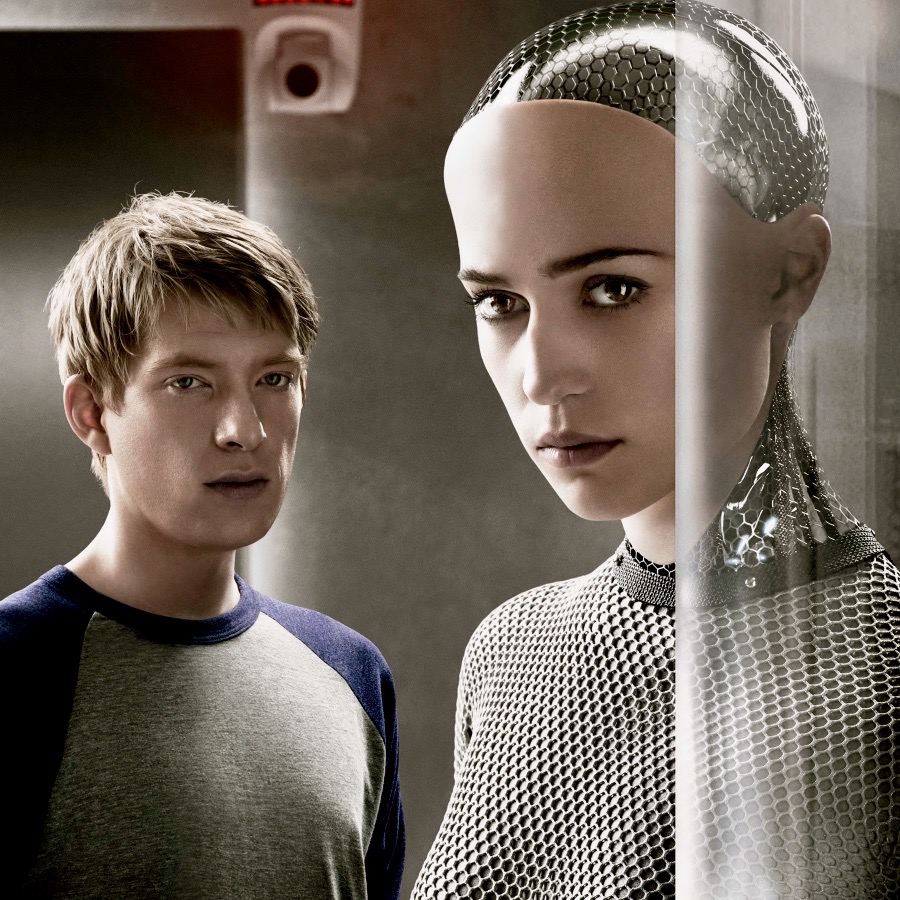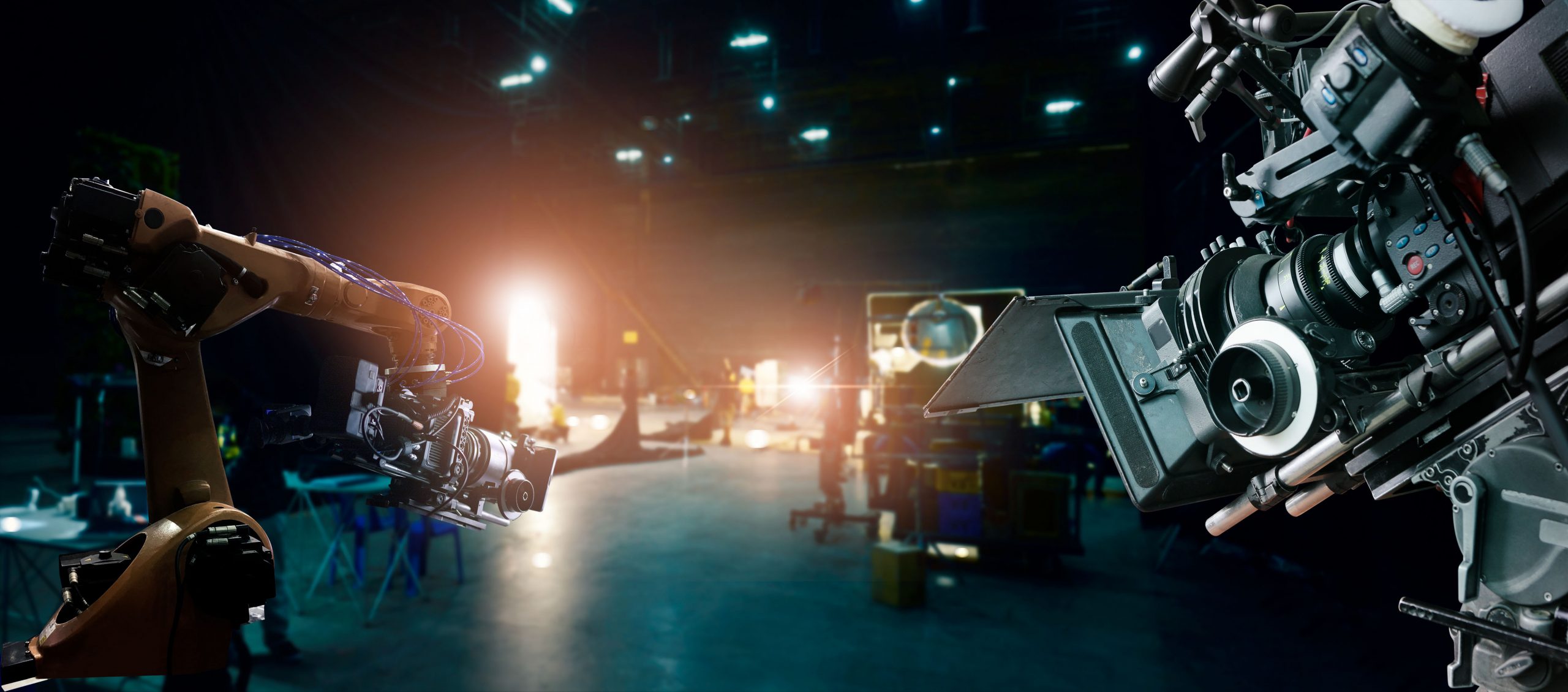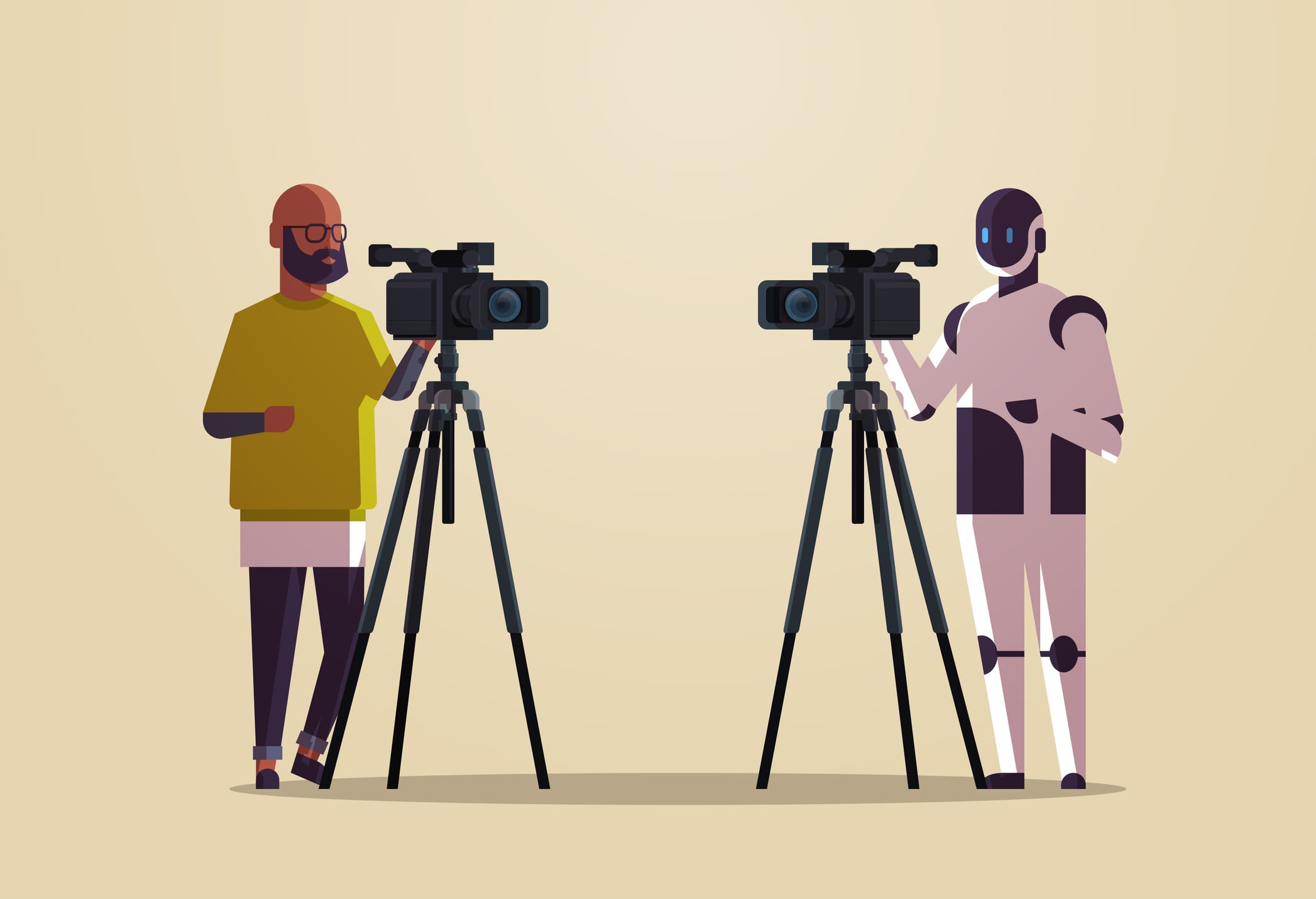Heard Of AI In Jobs And Companies? Let’s Welcome A New World Of Films And Cinema Crafted By AI!
The future of AI films is exciting, as are the works produced by such technology, which range from the bizarre to the hilarious.

The directors of the films are robots, and the actors are holograms. It’s a scenario from the future of cinema when the popcorn will ideally still be natural – buttery and wonderful, hopefully expecting. If you thought artificial intelligence in filmmaking was solely for special effects, think again. Machine-learning algorithms will soon make complete movies shown on a screen near you. With artificial intelligence (AI) taking over creative control, expect films with more twists and turns than a rollercoaster and characters that may be manufactured by software but are so lifelike that a spectator may relate to them. The AI will generate the complete cast and crew as well.
What kind of films will be crafted by AI?
From romantic comedies starring two algorithms who can’t seem to find love to action films where the only thing more explosive than the special effects is the AI-generated script, these films will have audiences laughing, crying, and biting their nails over the protagonists’ travails. When it’s all said and done, people may be shocked at how technology can create set pieces that are as absorbing as they are out of this world. Just Imagine what this future era of cinema will look like, with directors who are computers but entertainment that is 100% human-approved, and what are the numerous aspects that will form it?

Why is AI so prevalent? Even in the film industry?
Artificial intelligence in filmmaking is not a new concept. Still, recent advances in machine learning, natural language processing, and computer vision have made AI more practical and accessible than ever before. With the rising availability of big volumes of data and processing power, AI algorithms can now learn from massive amounts of data and deliver increasingly human-like outputs.
AI algorithms, for example, are increasingly used to study audience preferences, forecast box office success, and even offer film casting options. Conversely, AI-generated content is gaining popularity in entertainment, with AI algorithms creating music, artwork, and even complete scripts.
As technology advances, it is conceivable that the world will witness more AI directors and performers in the near future, potentially transforming the way entertainment is viewed and consumed for the foreseeable future. However, while AI can help in the creative process, it will never be able to replace the particular human touch and creativity that makes art unique.

What is the level of creativity, and how will it boost creativeness?
AI can evaluate viewer data to learn about their interests and give tailored recommendations, allowing filmmakers to tailor their narrative to specific audiences. For example, AI might recommend story aspects or character attributes that appeal to various categories or individuals. Such technologies can help filmmakers develop fresh ideas and motivate them to experiment with new storytelling strategies. AI, for example, may examine old films to detect trends and develop new plots with comparable themes or characters.
AI algorithms can sift through massive quantities of data to generate increasingly nuanced and sophisticated personalities. This may assist filmmakers in developing interesting and sympathetic characters with which audiences can identify on a deeper level.
Furthermore, advances in deep fake technology combined with the powers of generative AI can help bring back iconic figures like Charlie Chaplin to the big screen.
The portfolio of movies crafted by the creativity of AI.
- The Last Stand, an AI-generated sci-fi movie that Hashem Al-Ghaili posted on YouTube, is a recent example.
- The 2018 short film Zone Out, directed by filmmaker and artist Kokofreakbean, is another well-known entry on the list. A machine-learning algorithm was used to make the movie. It studied and processed hundreds of hours of stock video and then used the results to create a brand-new visual sequence.
- Another short film made with AI technology is Morgan Lives in a Rocket House. Morgan, a robot, appears in the Alex Albrecht-directed movie.
- An AI called Benjamin wrote the full science fiction short film Sunspring. Thomas Middleditch starred in the Oscar Sharp-produced movie.
- Filmmaker and artist Raven Kwok used generative AI algorithms to construct the short film Eclipse. The clip was developed with a specially designed software program with several abstract graphics.
- Keiichi Matsuda used a combination of live-action video and generative AI technologies to produce the short film Hyper-Reality. In the dystopian future depicted in the movie, technology has taken over every aspect of human life.

These are only a few examples of films generated with generative AI technology. As AI technology advances, more creative and inventive applications of generative AI in the film industry will emerge.
Who is creating these movies-the leading companies in the AI media and entertainment business?
- Amazon Web Services.
- Veritone.
- Gravity Media.
- GrayMeta.
- International Business Machines Corp.
- LMG.
- Pixellot.
- Synthesia.
- Valossa Labs.
- Sportway.
- AISportsWatch.
- AutomaticTV.
- EVS Broadcast Equipment.
- Move.ai.
- Spiideo.
Recently, around 600 digital film artists joined forces with Aifilms.ai, a Spanish startup dedicated to developing a unique subgenre of films for AI-generated films. Cesar Romero Pose, a Swiss-born Spanish TV actor, developed Aifilms.ai to use artificial intelligence to reinvent narrative.
What is the size of this industry expected to be?
The worldwide AI in the media and entertainment market is predicted to develop at a compound annual growth rate (CAGR) of 27.8% from USD10.74 billion in 2022 to USD13.72 billion this year. The AI market in media and entertainment is predicted to reach USD34.86 billion by 2027, at a CAGR of 26.3%.
There are expected to be 97 million job openings in AI-related businesses by 2025.
Can these films lead to copyright infringements?
Now every coin has two sides, and so is the case of films crafted with the help of AI. Films developed with artificial intelligence (AI) can potentially breach copyright. Using copyrighted material without permission or appropriate licencing might lead to legal problems for the film’s authors.
For example, if the AI system utilises copyrighted music or film without getting the necessary permits or licences, the designers may face legal repercussions from the copyright holder. Similarly, suppose the AI system develops content that infringes on someone else’s intellectual property rights, such as exploiting existing characters or stories. In that case, the filmmakers might be prosecuted for copyright infringement.

To prevent copyright difficulties, AI-generated film creators must guarantee that every content utilised in the film is either in the public domain or licenced for such usage. This may entail gaining permission from the copyright holder or using content from sources that allow for free and lawful usage, such as Creative Commons licencing.
Is there any reward for originality?
AI, with its lightning-fast processing power and data-analysis capabilities, has the potential to transform a mediocre script into a blockbuster success. However, like with every technical progress, there will be difficulties. Copyright issues will be one of the most difficult concerns. Who owns the copyright to an AI-created story? Is the AI considered a legal person? These are issues that must be addressed in the next years.
The final verdict.
Overall, the future of AI films is intriguing, and the creations that such technology produces, ranging from the insane to the amusing, will be thoroughly scrutinised. One day an AI film will win an Oscar for best picture. It will be a big leap for filmmaking, signalling a shift in the script — that algorithms have taken control of.




